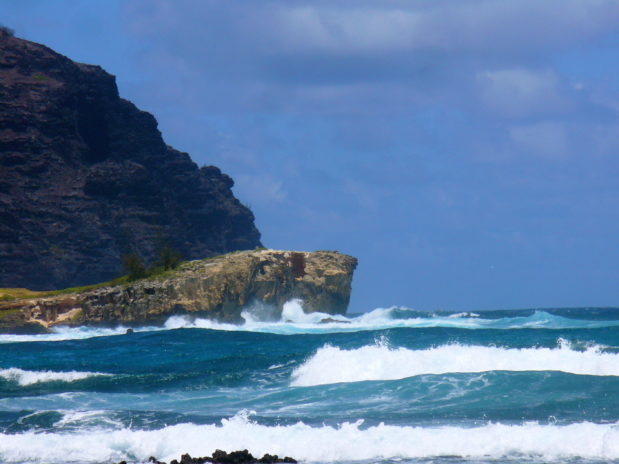Good God, Cruel World
A recent letter to RTB asks a familiar question: “How do you explain events like natural disasters that cause mass destruction, millions of deaths, and indiscernible suffering throughout the entire history of the world?” In other words, how does a Christian account for “natural evil” (the awful effects of natural calamity) in a universe created by the all-loving, all-powerful God of the Bible?
Moral evil in the universe seems easier to explain: Evil people make evil choices. But humankind’s choices do not account directly for all of the “bad” things that happen in the world. “Natural evil” presents a more difficult intellectual hurdle to the Christian faith. Today, for example, we may ask (or be asked) how a loving God could allow Hurricane Mitch and the Armenia earthquake to shatter countless lives? Given the occurrence of these and other horrific natural disasters, skeptics assert that the existence of an all-powerful, all-loving God makes no sense.
When faced with this question, the Christian would do well to concur that certain natural phenomena (earthquakes, hurricanes, tornadoes, tidal waves, etc.) do wreak havoc and bring suffering. Clearly, these tragedies warrant a compassionate and empathetic response, and questions about them deserve serious consideration. If we seem cold or callous about human suffering and loss, the opportunity for thoughtful discussion will most likely be lost.
We can, however, talk about natural “evil” as a misnomer, at least in one crucial sense. Phenomena such as earthquakes and hurricanes actually prove beneficial for mankind. Planetary scientists, among others, affirm that events such as hurricanes and earthquakes must occur for planet Earth to maintain the delicate balances of atmospheric and other environmental conditions mandatory for human life to exist and survive. As Hugh Ross documented in a recent article:
“[Hurricanes] counterbalance the ocean’s tendency to leach carbon dioxide from the atmosphere. This leaching, if unchecked, would result in a catastrophic cooling of the planet. On the other hand, hurricanes prevent the oceans from trapping too much of the sun’s heat by helping to circulate greenhouse gases globally as they shade the ocean locally, preventing heat from building up too dramatically for the safety of certain sea creatures.”1
Likewise earthquakes play a vital role in providing for mankind’s survival. Without them, “nutrients essential for land life would erode off the continents and accumulate in the oceans. In a relatively brief time, land creatures, at least the advanced species, would starve.”2 But thanks to the movements of the Earth’s tectonic plates, these nutrients are recycled back onto the continents.3
Second, some of the suffering caused by natural disasters can be avoided if human beings act prudently in acknowledgement of nature’s awesome power. If, for example, people build homes in what proves to be a flood zone, they must prepare to deal with the floods or move somewhere else. Or, if people choose to live on or near a major earthquake fault, they must also prepare for and accept all the risks that accompany that location choice.
From a biblical standpoint, God included nature in Adam’s consequences for misuse of freedom. Adam and Eve brought trouble not only upon themselves and their descendents, but also upon the planet. As a result of their actions, God pronounced an inhospitable relationship between nature and humankind (Gen. 3:17-19). The farmer must till the ground by the sweat of his brow. No longer do its fruits come forth easily. Although the exact correlation between natural disasters and the Fall remains only partially explained, we can say with assurance that Adam’s sin did have an adverse affect on nature (not the laws of nature) and that both await full redemption at the Last Day (Romans 8:19–25).
In the next issue, we will see how the Christian can turn the tables on the atheist by doing an internal critique of the skeptics’ own worldview assumptions. The existence of evil, far from disproving God, can actually be used as an argument in favor of the existence of God.
Endnotes
- Hugh Ross, “Hurricanes Bring More Than Destruction,” Facts & Faith 12 (1998), 4–5.
- Hugh Ross, “Temblors Touch Off Questions,” Facts & Faith 6.3 (1992), 2–3
- Hugh Ross, The Creator and the Cosmos, 2nd ed. (Colorado Springs: NavPress, 1995), 136–145.






